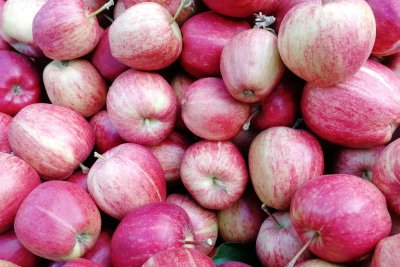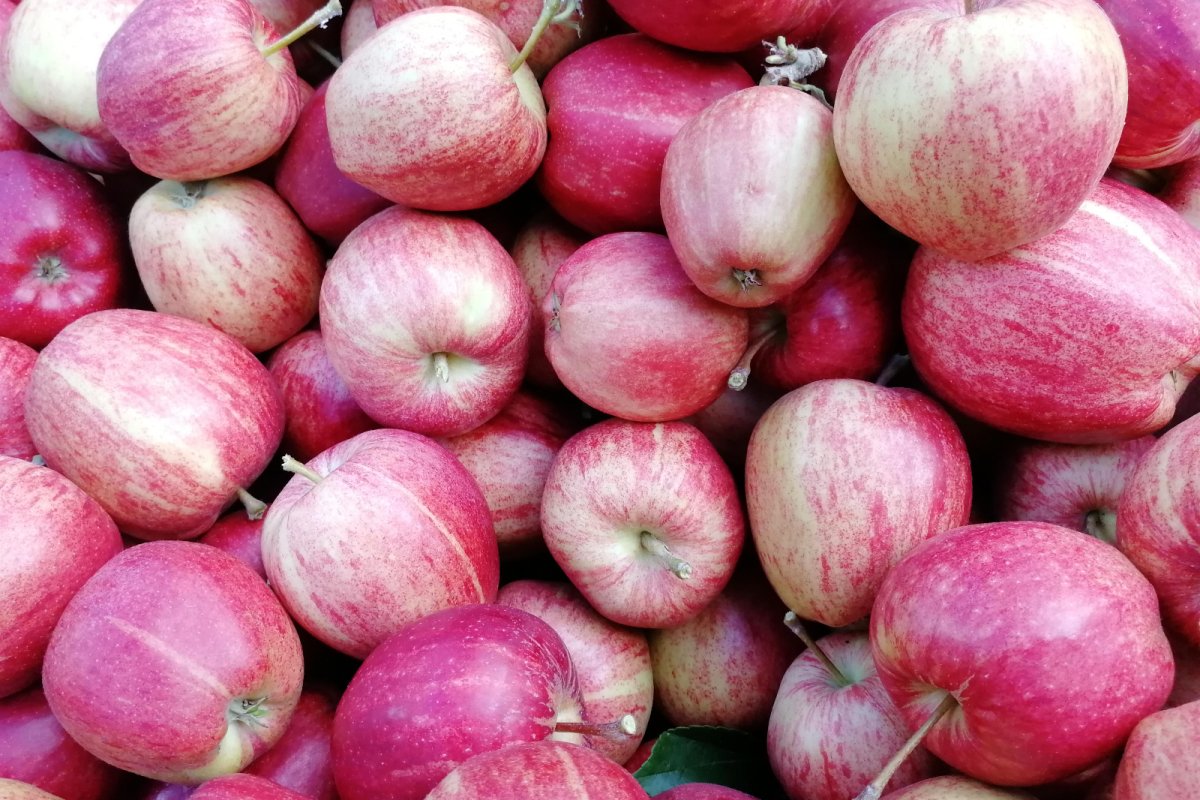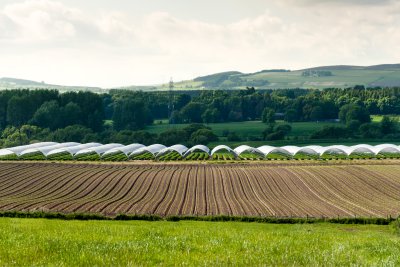 Videoapples, Kent. will UK producers face imports with higher pesticides Credit: Vicki Hird
Videoapples, Kent. will UK producers face imports with higher pesticides Credit: Vicki Hird
The UK is looking to negotiate the new Free Trade Agreement (FTA) in record time in order to ‘double trade with India by 2030’. It is likely to face considerable pressure to water down pesticide standards from the Indian government, which is infamous for lobbying aggressively against protections.
Josie Cohen, Head of Policy and Campaigns at PAN UK said: “Pesticide regulations aren’t bargaining chips, they are there to protect people’s health. Watering them down to secure a new trade deal would create serious public health risks at home whilst also making our farmers less competitive abroad. Deals of this size typically take years to complete - rushing through negotiations without fully thinking through the consequences is a recipe for disaster.”
Whilst negotiations are taking place behind closed doors, the new agreement looks likely to significantly increase food exports from India to the UK. This could see Indian-produced staples with illegally high levels of pesticides, such as rice, wheat and tea, reach the UK. The report highlights that:
- India currently allows the use of 62 percent more ‘Highly Hazardous Pesticides’ (HHPs) than the UK.
- India tends to allow larger amounts of chemicals to appear in food than the UK. For example, common foods such as apples and grapes can contain 200 times the levels of the insecticide Malathion, which has been linked to cancer, infertility and birth defects.
- A new trade deal with India could mean an increase in Indian wheat exports to the UK. India allows wheat to contain 50 times the amount of chlorpyrifos than its UK equivalent. Chlorpyrifos was banned for use in the UK in 2019 due to evidence that it can harm children’s brain development.
- In 2021, 200 tonnes of Indian rice was rejected globally each month for containing pesticide residues that exceeded the legal limits of importing countries. With a relaxation of the rules, this produce risks ending up on UK shelves, especially given border controls are stretched following the UK’s EU exit.
The deal is also likely to have major impacts on UK agriculture, with Indian farmers able to produce food more cheaply using toxic pesticides that are banned in the UK. The UK Government’s own expert body has warned that this double standard threatens to hand foreign agribusiness a competitive advantage and undercut UK farmers.
Given India’s status as one of the world’s largest food exporters, it is unsurprising that the UK government has recognised in its own impact assessment that a deal with India will result in a fall of around £10m in domestic agricultural output.
Dr Emily Lydgate, Reader in Environmental Law at the University of Sussex, said:
“The Indian government has a long record of lobbying to relax levels of permitted pesticide residues, and UK negotiators will inevitably face pressure to weaken domestic regulation. Indian produce regularly contains illegally high levels of pesticides, and with an already under-resourced UK border force following Britain’s exit from the EU, an FTA that weakens the rules could pose a significant risk to public health.”
Vicki Hird, Head of Sustainable Farming at Sustain said:
“This deal could turn significant health risks to the UK public into a competitive advantage for Indian agribusiness over our own farmers. A deal with one of the world’s largest agri-producers risks undermining the considerable efforts being made to ensure UK farming is more sustainable. We must get the details right.”
A. D. Dileep Kumar, CEO, PAN India said:
“Weakening pesticide standards in the UK has deadly consequences for farmers on the ground in India. Over 30,000 people die each year in pesticide-related deaths, and incentivising greater pesticide usage with relaxed laws and an expanded market will compound this problem even further.”
The report proposes a set of detailed recommendations for the UK government including:
- Do not allow any weakening of UK pesticide standards via a UK-India FTA. This must include:
- Ensuring that no currently banned pesticides are allowed for use in the UK
- Ensure that food containing detectable residues of currently banned substances cannot be imported into the UK
- Ensure that Maximum Residue Levels are maintained or reduced.
- Prevent UK farmers from being disadvantaged by cheap food imports produced to weaker pesticide standards in India.
- The UK should ensure that its border controls are adequately resourced to ensure that products with illegal levels of pesticide residue aren’t circulating in the UK.
The public are being asked to write to their MP to not allow a deal with India to harm human health or the environment.
Notes:
1. Download the full report Toxic Trade: How a trade deal with India threatens UK pesticide standards and farming.
2. Domestic pesticide harms in India - Relaxing the UK’s pesticide regime and dramatically increasing India-UK agri-food exports will fuel an already disturbing trend in pesticide-related harms in India. As the world’s second highest user of pesticides, India has one of the highest rates of unintentional pesticide poisoning in the world - with over 30,000 fatalities every year.
Sustainable Farming Campaign: Pushing for the integration of sustainable farming into local, regional and national government policies.








